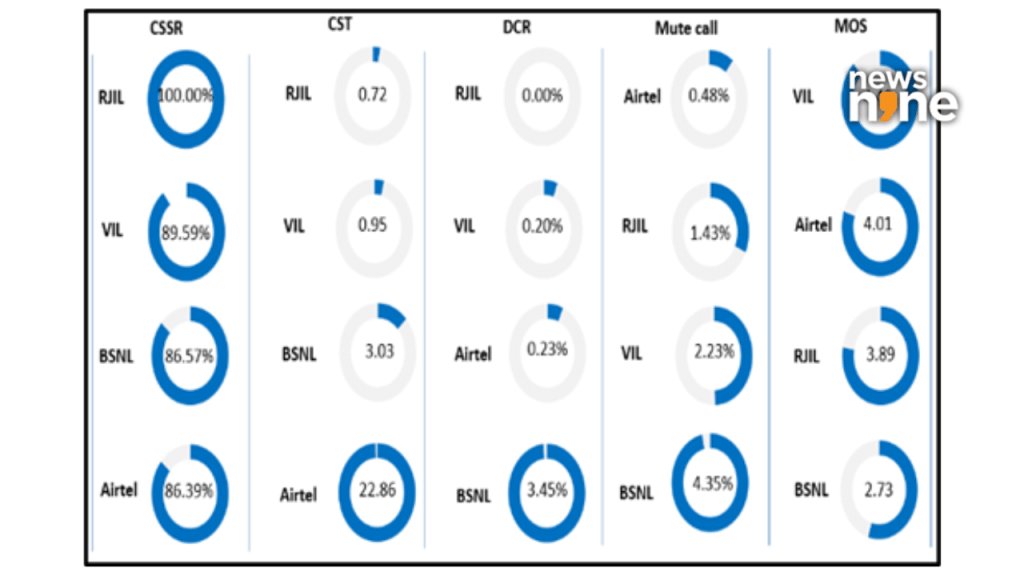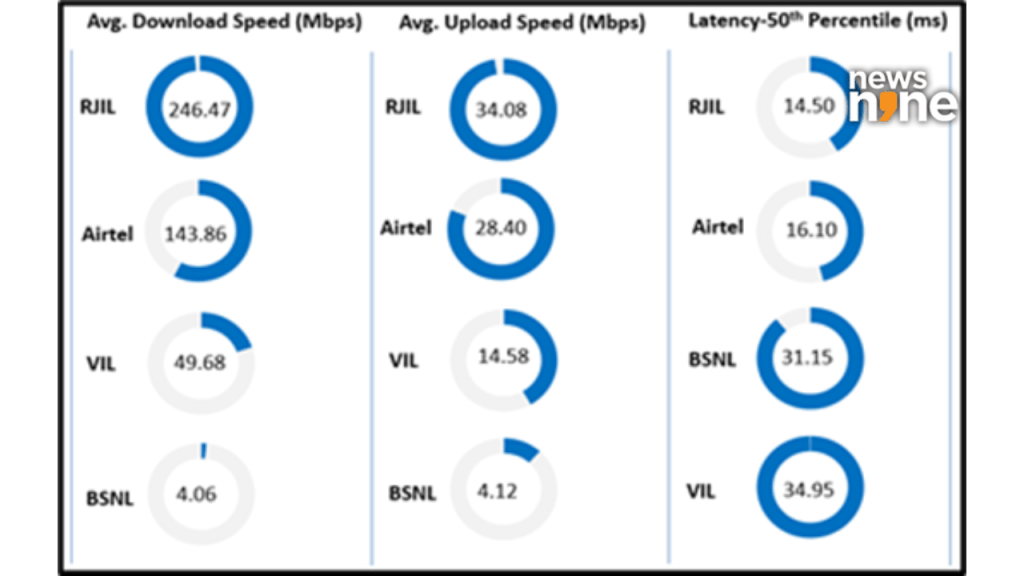New Delhi: Mobile network issues in north India’s heartland just got a reality check. Between June 2 and June 4, 2025, the Telecom Regulatory Authority of India (TRAI) ran a massive independent drive test across Meerut city and the highway route from Delhi to Meerut. The findings paint a mixed picture of voice and data services, with big differences between telecom players like Airtel, Reliance Jio, Vi, and BSNL.
The TRAI regional office in Delhi oversaw this detailed three-day field test. It covered over 280 km across cities, highways, institutional zones, busy public places, and even high-speed corridors. The idea was simple: see how these networks really behave when regular people use them, and not just rely on what companies promise on paper.
Jio tops voice quality, Airtel and Vi lag in call setup time
Let’s start with the basics, making a call. Jio scored 100 percent in call setup success rate, with no drop calls and a fast call setup time of just 0.72 seconds. Airtel and Vi didn’t fare too badly either but took a hit on the call setup time. Airtel took nearly 23 seconds on average to connect a call. Vi was quicker at under 1 second, but its call silence rate , where users hear dead air, was over 2 percent.

Source: TRAI
BSNL was the worst performer across almost every metric. It had a low call setup success rate of 86.57 percent and the highest drop call rate of 3.45 percent. Call silence was also a major issue with BSNL at 4.35 percent.
When it comes to voice clarity, Vi had the best Mean Opinion Score (MOS) at 4.40, followed by Airtel and Jio. BSNL lagged again with an MOS of just 2.73.
5G data speeds are rising , but vary across hotspots
The real battleground is now data, and here 5G is making its presence felt. Jio posted a city hotspot download speed of 283.25 Mbps and upload of 31.85 Mbps. Airtel clocked 193.88 Mbps download and 58.82 Mbps upload in the same zones.
On average, Jio users saw download speeds of 246.47 Mbps while Airtel delivered 143.86 Mbps. Vi struggled with an average download speed of 49.68 Mbps, and BSNL, expectedly, trailed at just 4.06 Mbps.

Source: TRAI
Interestingly, Airtel outshone Jio in upload speeds, averaging 28.40 Mbps compared to Jio’s 34.08 Mbps. Vi managed just 14.58 Mbps. These results reflect both network strength and how aggressively telcos are rolling out their 5G infrastructure.
Areas and institutions under test
TRAI’s test didn’t just stay on roads. It covered residential hubs like Ganga Nagar and Madhav Puram, education zones like Chaudhary Charan Singh University and IIMT University, and high-footfall places like Meerut Railway Station and PVS Mall. The Delhi to Meerut NE-3 highway was also mapped, going through Lal Kuan and Bhojpur.
TRAI used standardised and calibrated tools to test all networks in real-time across all technologies, 2G, 3G, 4G and 5G.
Airtel blames delay on government announcement rule
Airtel, while acknowledging higher call setup times, attributed the delay to the Pre-Call Announcement (PCA) rule enforced by the Department of Telecom. This rule plays a recorded message before connecting calls, impacting how quickly calls are established.
Why this matters
This test shows that even in Tier 2 cities like Meerut, telecom performance can be patchy. While Jio and Airtel are clearly leading, especially in 5G zones, BSNL’s performance continues to be poor. Users in cities and highways alike are getting different levels of service depending on location and network.
TRAI’s report puts pressure on all telcos to fix blind spots, improve call quality, and keep up with real-world usage. With more users shifting to 5G and expecting consistent data speeds, this kind of transparency could help push for better service, not just in metros but also in smaller cities.
